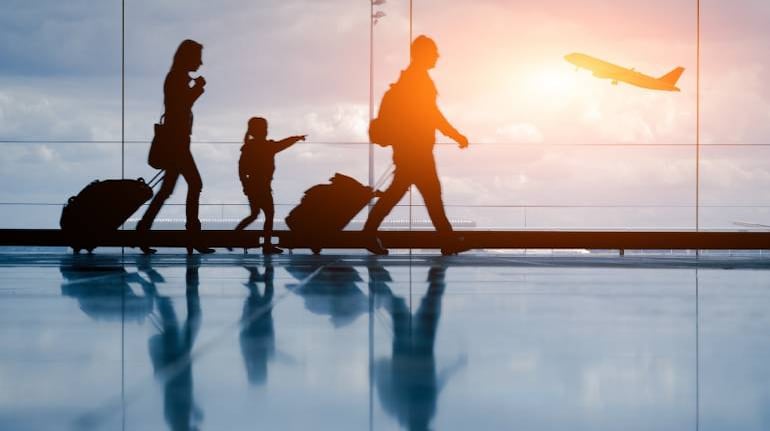



Trust the British to create a problem where there exists none. Part bureaucratic inertia and some measure of colonial hangover, the British went against every strain of logic to raise questions over India’s vaccination certificate format.
That meant inoculated Indians travelling to the United Kingdom would be treated as unvaccinated. Britain claimed this change was brought in after the National Health Authority (NHA) updated the certification to make it compliant with the specifications from the World Health Organisation (WHO) while issuing vaccination certificates.
This position doesn’t cut much ice.
After reports that India would take reciprocal action with UK nationals travelling to India, British authorities came out with a perfunctory statement aimed at salvaging the situation. “The UK is continuing to work on expanding the policy to countries and territories across the globe in a phased approach. We are continuing to engage with the Government of India on technical cooperation to expand UK recognition of vaccine certification to people vaccinated by a relevant public health body in India,” the British High Commission spokesperson said in a statement.
But why the UK took such a baffling decision in the first place still begs a credible answer. British authorities cannot be oblivious to the fact that the real race now is for vaccinating as many people as possible in the shortest possible time across the world to reopen economies, and to get people return to normal life to the extent possible.
Indians and Indian investment play their own part in the economic life of the UK.
The Indian expatriate community of 1.6 million, which accounts for less than 2 percent of the UK’s population, contributes to 6 percent of that country’s GDP. India is the second-largest source of the UK’s Foreign Direct Investment after its Anglo-Saxon partner, the United States.
The formulations of Covishield vaccine, developed jointly by AstraZeneca and Oxford University, and manufactured under licence in India by the Serum Institute of India, qualified as an ‘approved’ vaccine in the UK.
But the vaccination certificates are not! It is at best a childish argument. It amounts to saying that your vaccine is good, but the format in which you are certifying vaccinated people is not good enough. This gaping problem in the format of the certificate is that it doesn’t mention the date of birth of the vaccinated.
Had this been the only thing, the issue would have been over after Indian authorities said people travelling internationally could download an international version of the certificate, which would display their date of birth.
Instead, the UK came out with a lazy explanation to stay on with its illogical decision for some more time. But the problem here is not that of a certificate format, but a mindset that is discriminatory, and an approach that borders on the UK positioning itself as ‘little’ England with different sets of rules for different nationalities.
Going by that logic, the UK can never let a US national enter its territory — at least for now. It is a fact that the US that leads the world in vaccinating the maximum number of its citizens don’t issue a uniform digital certificate. One in every four US national has been vaccinated. But their vaccination certificates are issued locally, and do not conform to any standardised digital format.
Whereas in India, the vaccinations are done through various state governments and some private hospitals, but the vaccination data is centralised, and the certificates are issued by a central authority. The vaccination registration is also done on the basis of a government-issued identity card of the applicant’s choice, and each of it has the date of birth of the person concerned on it.
The UK, which has been positioning itself as the leader of cyber security initiative, should have appreciated the Indian approach of using a centralised data-base to issue COVID-19 vaccination certificates which effectively addresses the concerns of private players accessing the data with ease in the name issuing certificates.
India’s Digital Infrastructure for Verifiable Open Credentialing (DIVOC) programme is secured through a digitally-signed QR code.
With all kinds of privacy concerns floating around in the US, the Americans getting a standard vaccine certificate might take some time. But the question is, till that time, will the British ban the entry of US nationals?
One of the aftermaths of the COVID-19 pandemic is that every country will be wary of in-coming travellers. That is quite understandable as the world is still reeling under the disastrous consequences of the pandemic.
With economies starting to open up, the world cannot afford to court another economic disaster, and the best way is to ensure that international travel remains as safe as possible. The focus must now be on reviving the economy and boosting economic partnerships.
A COVID Vaccine Certificate (CVC) is the most convenient ticket to resume international travel for work, study, business, leisure, or to be reunited with families. The premium has to be on vaccinating everyone, and not getting into the nitty-gritty of the process of issuing certificates.
Jayanth Jacob is a foreign policy commentator who covered the ministry of external affairs for more than two decades. Twitter: @jayanthjacob.Views are personal and do not represent the stand of this publication.Discover the latest Business News, Sensex, and Nifty updates. Obtain Personal Finance insights, tax queries, and expert opinions on Moneycontrol or download the Moneycontrol App to stay updated!
Find the best of Al News in one place, specially curated for you every weekend.
Stay on top of the latest tech trends and biggest startup news.